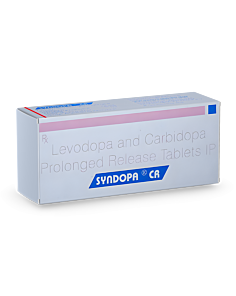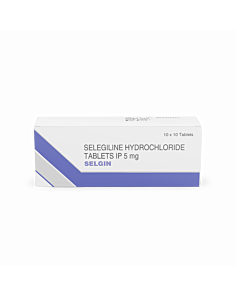Anti Parkinsonian
Understanding Parkinson's disease
Parkinson's disease (PD) is a known neurodegenerative disease that mostly affects neurons in the substantia nigra, a certain part of the brain.
Parkinson's disease is more common in older people, but it can also affect younger adults.
It usually starts between 50 and 65 and affects about 1% of people in that age range. Men are more likely than women to get it.
What are anti-Parkinson's medicines
Anti-Parkinson's medicines try to replace dopamine with either medicine that releases dopamine or medicines that work like dopamine.
Parkinson's disease is a degenerative movement disorder that happens when the basal ganglia doesn't have enough dopamine.
Antiparkinson medications enhance dopamine levels to cure or slow the condition, making shaking and slow movement easier.
How does anti-Parkinson's medicine work
Anti-Parkinson's medicines treat Parkinson's' dopamine deficit. Levodopa, commonly used alongside Carbidopa, replenishes dopamine levels.
The activity of dopamine agonists compensates for low dopamine levels. MAO-B inhibitors help in maintaining dopamine levels.
Levodopa's inhibitors prolong Levodopa's effects. Anticholinergics reduce tremors and stiffness by modulating acetylcholine.
Amantadine boosts dopamine. These medicines help Parkinson's patients with motor symptoms by restoring neurotransmitter equilibrium.
Under medical supervision, personalized treatment plans with meticulous dosage modifications maximize benefits and minimize side effects.
Commonly used anti-Parkinson medicines.
Listed below are some of the most commonly prescribed anti-Parkinson's medications:
- Syndopa CR 50 + 200 mg
- Amantrel 100 Mg
- Pramipex 0.5 Mg
- Relgin 1 Mg
It is very important that you consult a doctor before taking any of these medicines.
Your doctor can help you decide what kind of medicine and how much of it you need to take.
Side effects of anti-Parkinson medicines
Anti-Parkinson's medications can have various side effects, and these side effects may vary depending on the type of medication and individual response.
Some common side effects of anti-Parkinson's medicines include:
- Blurred Vision
- Dizziness
- Dry mouth
- Nausea
- Upset stomach
- Feeling restless
These side effects may not occur to everyone and can be mild to severe. Doctors monitor patients for side effects and adjust dosage and medicine to optimize treatment.
Why buy from us
This section of our website is dedicated to Anti Parkinson medications used to treat Parkinson's disease.
GoodRx medicine shop is not just your average online pharmacy. Here, customers can get medications related to any of their health issues.
You can also find medicines like immune system boosters, Erectile Dysfunction medicines, Asthma prescriptions, Cancer treatments, etc.
We work hard to offer the best medications to patients throughout the world with the help of our online pharmacy.
On an international level, we offer both generic and name-brand medications. Considering the economic issue, we provide a wide range of medicines at an affordable price.
You can purchase all additional prescription and over-the-counter medications at this convenient place.
Our GoodRx medicine shop offers the best and most reliable customer service.






